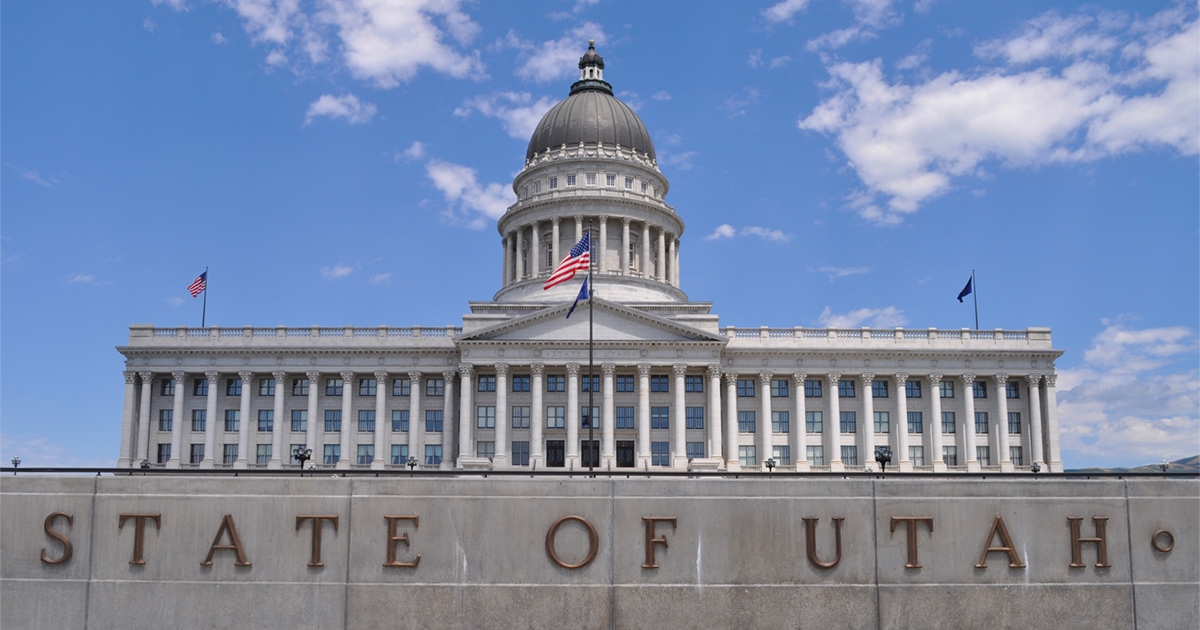Vest Pocket Board Members Pushed For Reform of the Business Personal Property Tax at the Utah State Capitol on Nov. 27

Four members of Vest Pocket’s Board of Directors attended Monday’s joint Utah House and Senate Revenue and Taxation Committee hearing to urge lawmakers to reform the Business Personal Property Tax. The issue was the biggest area of concern voiced by attendees of Vest Pocket’s October small business advocacy planning meeting.
Vest Pocket’s Doug Burton (President), Carol Elliott (Advocacy Chair), and John Lair (board member) were in attendance at the Capitol on Monday to testify about the burden the tax imposes on Vest Pocket’s member businesses.
Listen
Click below to listen to audio of Vest Pocket board members speaking during the meeting.
Speaking before the committee, Burton noted that many Vest Pocket members are in the retail and light manufacturing business and are burdened by not only having to pay the tax but also by the enormous amount of time required to inventory and assess the value for hundreds or thousands of individual items and to complete the required paperwork.
Vest Pocket Advocacy Chair Carol Elliott (owner of Paletti, a local women’s clothing boutique), emphasized the impact of small business in Utah, noting that “small business hires more people in Utah than any other type of business and money that is spent in local business stays in the cities and in the state.” Elliott added, “We are the ones that hire other local businesses to (provide) services.” Elliott urged the commission to look at modifications to the code that would make it fairer for the small business community. “Taxes should not put local small businesses out of business,” she added.Board member John Lair (President and CEO of Momentum Recycling) detailed how the tax had unfairly impacted his company. “Amongst other services we provide in the area we do all the glass recycling for Utah and the wider intermountain region.” Lair said: “We’re a very asset-heavy business, very akin to a manufacturer and so the issue that we have is two-fold. One is an issue of inequity. As a business with conveyors and hoppers and screeners and crushers, we pay tax that our friends with a similar revenue profile in software development and professional services don’t pay. So there’s a built in inequity as we talk about tangible personal property that’s taxed whereas intangible is not.”
Lair noted that the recycling industry has seen a lot of rough years. “In 2016 we had a loss in our business, and yet we still had to pay $32,000 in Business Personal Property Tax.” Lair added: “We had to borrow money and lay off an employee in order to cover this tax. That’s not how it should work in the state of Utah.”
Referring to the inequitable enforcement of the tax, Lair noted that there are many businesses that aren’t even aware of the tax and have never paid it or haven’t paid it for years. “They first learn about it when the auditor first comes into their business,” Lair said.
Burton cited two examples of the stringent application of the tax by auditors, as reported to him by Vest Pocket members:
- The taxation of artwork hanging in a tea shop – artwork that the tea shop didn’t even own as it was on loan from the artist
- An antique dining table that was a family heirloom that became subject to taxation because a set of business plans sat atop the dining table for a few minutes while the business owner met with the tax auditor
“This is the type of taxation that we feel is overly punitive and we don’t believe it represents the commitment that Utahns have for supporting small businesses,” Burton added. “Many of these are family-run businesses that have been in these families for generations.”
Most lawmakers in the Committee hearing agreed that a total repeal of the Business Personal Property Tax would require a (state) Constitutional Amendment. As an alternative, Vest Pocket supports the modernization of the tax code to include the provision that any item valued under $1,000 would be exempt from an itemization of valuation for tax burden.
In its deliberations, the legislative committee discussed another possible reform option: a $30,000 deduction off the wholesale valuation of personal property for a business. Vest Pocket would also support this modification.
Listen
Click here to listen to an audio clip of the afternoon session of the hearing.
Stay connected with Vest Pocket Business Coalition as we continue to follow this issue and others affecting your business ahead of the 2018 legislative session.
****
Be sure to attend Vest Pocket’s January 2018 Legislative Warm-Up Breakfast (date to be announced soon) to learn more about bills that may affect small business as well as more info about the progress on this issue.




